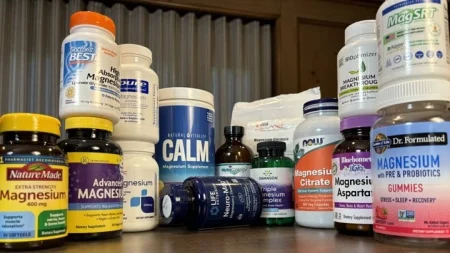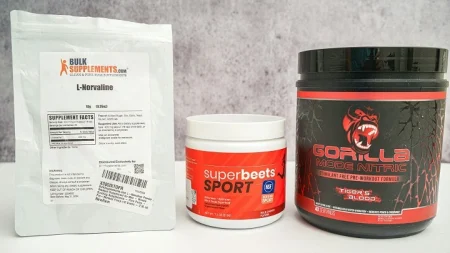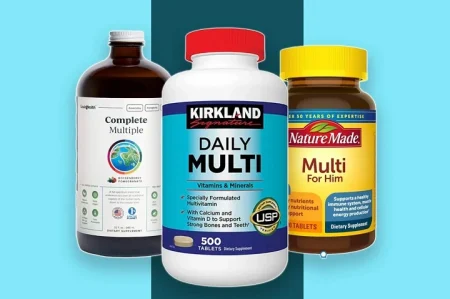In the pursuit of a well-defined physique, many fitness enthusiasts turn to supplements to support their muscle growth journey. While a balanced diet and consistent training regimen are essential, certain supplements can complement these efforts and maximize results. However, with a plethora of options available, it can be overwhelming to determine which supplements are truly effective. In this comprehensive guide, we’ll delve into the best supplements for muscle growth, backed by scientific evidence and expert recommendations.
Understanding Muscle Growth

Before exploring specific supplements, it’s crucial to understand the mechanisms behind muscle growth. Muscle hypertrophy, the process of increasing muscle size, occurs primarily through two mechanisms: mechanical tension and metabolic stress. Mechanical tension is generated during resistance training when muscles are placed under load, while metabolic stress refers to the buildup of metabolites like lactate during intense exercise. Both factors stimulate muscle protein synthesis, the key driver of muscle growth.
1. Whey Protein
Whey protein is a staple in the fitness community for good reason. Derived from milk during the cheese-making process, whey protein is a complete protein containing all essential amino acids, making it ideal for muscle repair and growth. Studies have shown that supplementing with whey protein can enhance muscle protein synthesis, especially when consumed post-workout.
- Provides a convenient source of high-quality protein
- Rapidly absorbed, making it ideal for post-workout recovery
- Contains branched-chain amino acids (BCAAs) which aid in muscle repair
2. Creatine
Creatine is one of the most extensively researched supplements in the realm of sports nutrition, and for good reason. It is naturally found in small amounts in foods like meat and fish but is often consumed in larger doses through supplementation. Creatine works by replenishing ATP (adenosine triphosphate), the primary energy currency of cells, thereby increasing energy availability during high-intensity exercise.
- Enhances strength and power output during resistance training
- Promotes lean muscle mass gains
- May reduce muscle fatigue and improve exercise performance
3. Branched-Chain Amino Acids (BCAAs)
BCAAs, namely leucine, isoleucine, and valine, are essential amino acids that play a crucial role in muscle protein synthesis. Unlike other amino acids, BCAAs are metabolized directly within the muscle tissue, making them readily available for energy production and muscle repair. Supplementing with BCAAs, particularly around the time of exercise, can support muscle growth and recovery.
- Stimulates muscle protein synthesis
- Reduces muscle soreness and fatigue
- May prevent muscle breakdown during intense training sessions
4. Beta-Alanine
Beta-alanine is a non-essential amino acid that combines with histidine to form carnosine, a dipeptide found in high concentrations in skeletal muscle. Carnosine acts as a buffer, helping to regulate pH levels during intense exercise and delay the onset of muscle fatigue. By increasing intramuscular carnosine levels, beta-alanine supplementation can enhance exercise performance and support muscle growth.
- Delays the onset of muscle fatigue during high-intensity exercise
- Increases exercise capacity and overall training volume
- Supports lean muscle mass gains over time
5. L-Glutamine L
-Glutamine is the most abundant amino acid in the body and plays a significant role in various physiological processes, including protein synthesis and immune function. During periods of intense exercise, glutamine levels can become depleted, potentially compromising muscle recovery and immune function. Supplementing with L-glutamine may help replenish these stores and support overall muscle health.
- Supports immune function and overall health
- Enhances muscle recovery and reduces muscle soreness
- May prevent muscle wasting during periods of intense training
6. Fish Oil
Fish oil is rich in omega-3 fatty acids, specifically eicosapentaenoic acid (EPA) and docosahexaenoic acid (DHA), which have been shown to possess anti-inflammatory properties. While primarily known for their cardiovascular benefits, omega-3 fatty acids also play a role in muscle protein synthesis and muscle repair. Incorporating fish oil supplementation into your regimen may promote overall muscle health and recovery.
- Reduces exercise-induced inflammation and muscle soreness
- Supports cardiovascular health and overall well-being
- May enhance muscle protein synthesis and recovery processes
Choosing the right supplements for muscle growth can significantly impact your progress in the gym. While supplementation can enhance your results, it’s essential to remember that they are meant to complement a well-rounded diet and consistent training program, not replace them. By incorporating the aforementioned supplements into your regimen strategically and in conjunction with proper nutrition and training, you can optimize your muscle growth potential and achieve your fitness goals more effectively. Remember to consult with a healthcare professional or registered dietitian before starting any new supplementation regimen, especially if you have underlying health conditions or are taking medications. With dedication, patience, and informed decision-making, you can unlock your full muscular potential and take your physique to new








